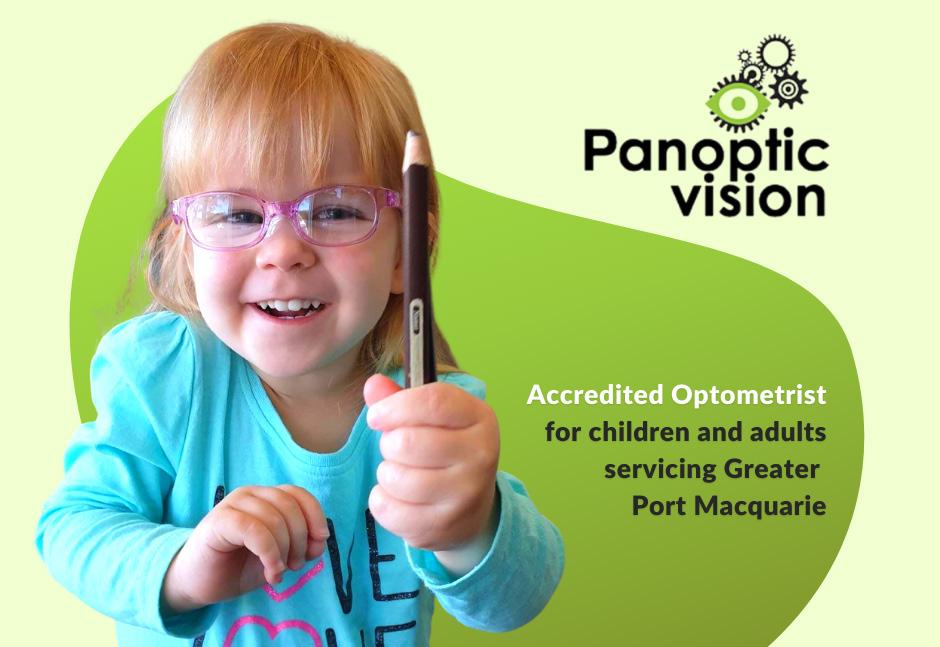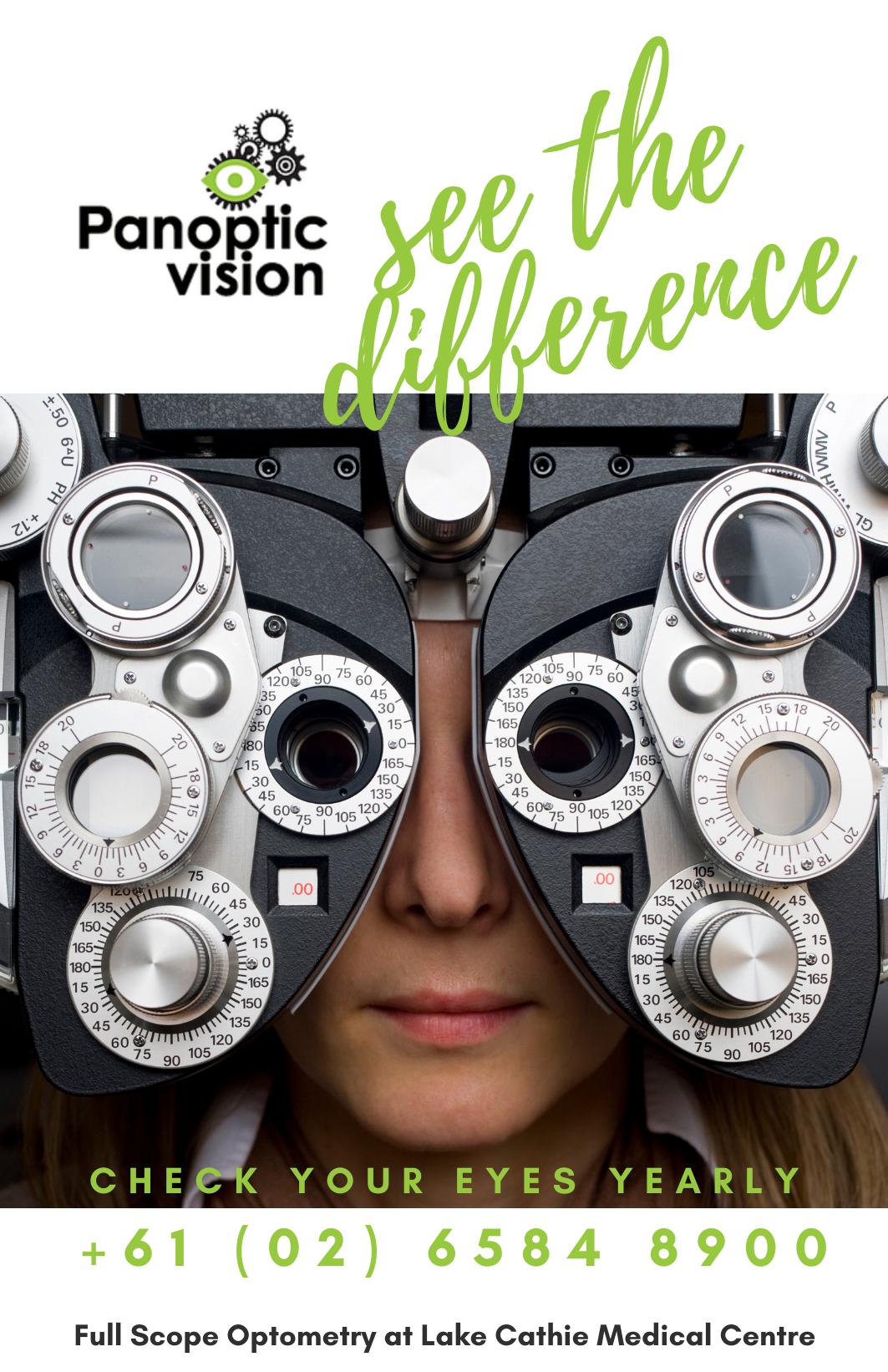
3 minute read
NATASHA BARNARD-FRENCH- PANOPTIC VISION
SEEING THE WHOLE
How you see can affect how you behave. Children with untreated visual acuity and eye muscle problems can affect their learning abilities. Difficulties reading and having a short attention span may be misconstrued as misbehaviour.
“As a Developmental and Behavioural Optometrist, I solve eye coordination function problems, treat a child’s developing skills of vision perception. For adults, I assess and manage visual issues associated with health, and neurological conditions, such as stroke and head injury, Parkinson’s disease, concussion and whiplash. These skills and treatment options mean that even if a patient doesn’t have a complex vision problem, I can provide the very best visual treatment for them. I often get told that I have solved a problem the patient didn’t even realise was related to their vision!”
Natasha’s job is to analyse visual systems and design a plan to help people make changes that can lead to improved visual performance or help adapt the visual system to what each person needs.
SIGHT AND VISION ARE NOT THE SAME
Seeing clearly depends on eye shape and health but this doesn’t always mean the two eyes work well as a team or the brain processes visual information appropriately. Good vision is an active process. Two sets of muscles control whether you see a single, clear image or a double, blurry one. Every minute your eyes are open, your brain is deciding how much attention to give to central detail compared to peripheral movement. This is task-specific and if it takes too much effort, the brain has no attention left over for more complicated processing.
Good vision needed for playing sport is very different to good vision needed for reading. Children with good sight but untreated vision problems can have trouble with their co-ordination playing sport or with their learning abilities in a classroom. Difficulties reading and having a short attention span may also be misconstrued as misbehaviour.
LOOKING AHEAD INTO THE FUTURE
Behavioural optometry is infinite in what it can offer and Natasha never stops being curious about the study of vision development. She is now looking at researching the specific visual/auditory processes behind learning to read English and learning to read music.
ENGAGING ALL THE SENSES
Prior to COVID-19, Natasha had been very involved with the regional music community. She is an accomplished pianist and flautist. Natasha enjoys playing flute with Sinfonia MNC, as well as engagements with the Players Theatre Productions and Glasshouse lunchtime concerts.
Musicality runs in the family, and her daughter Abi is a violinist! Natasha is happy to be kept busy accompanying her daughter on the piano and ferrying her to and from her violin lessons!
SEEING THE BIG PICTURE

We set up our optometry practice, Panoptic Vision in 2015. Panoptic in Greek means ‘Seeing the Whole’. We assist in understanding and attaining the best holistic vision outcomes for whatever patients consider important for quality of life.
Panoptic Vision is committed to providing vision solutions that go beyond. It is not just about solving a vision problem. It goes beyond - the focus is also to enhance visual performance and/or provide preventive options. Looking into the future also means continually investing in and making available state-of-the-art diagnostic technology to discover early signs of disease and provide the highest quality of eye care to the community. What many may not know is that there is not just one vision system. And people have different vision needs.
What makes Panoptic Vision stand out is their thorough examinations and personalised vision solutions to cater to different patient expectations and attend to all aspects of vision needs. Patients are given time to understand their condition and the potential range of options. This allows patients to choose what works best for them and their budget.












